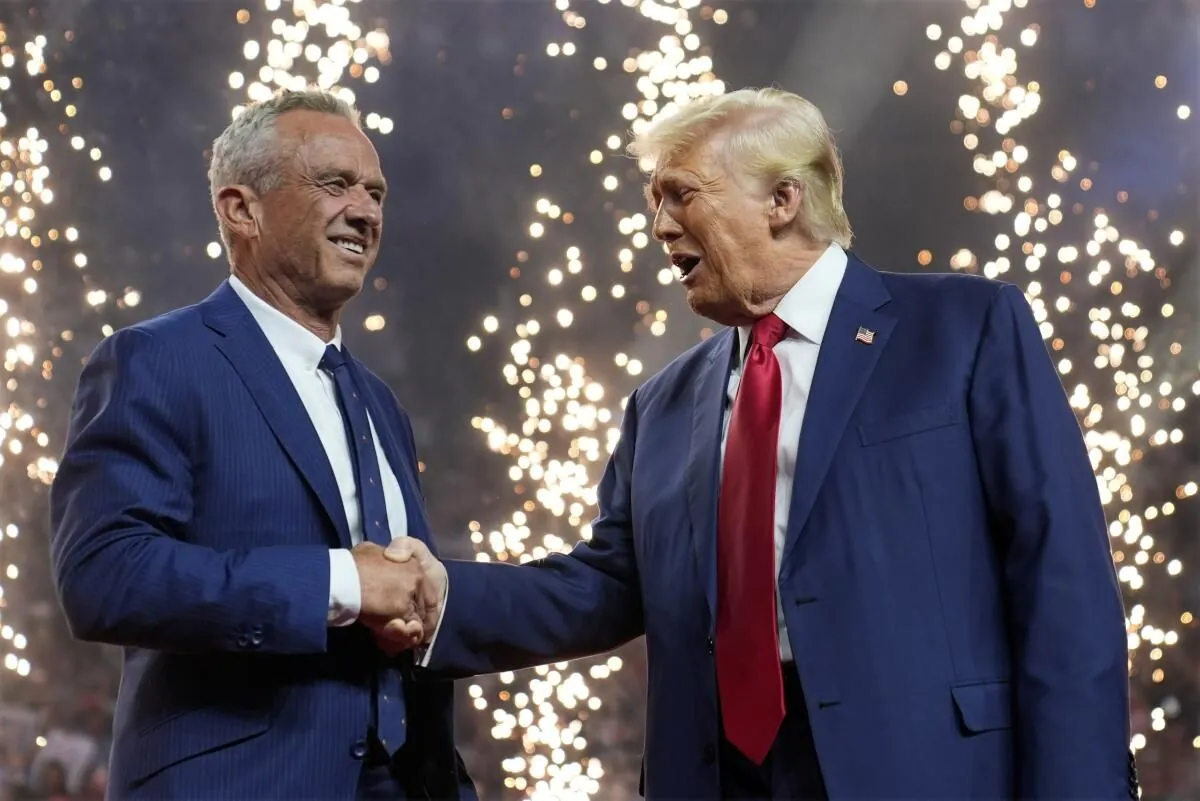In a surprising turn of events, Robert F. Kennedy Jr. has endorsed Donald Trump for the 2024 presidential election. This development, occurring on August 23, 2024, has sparked discussions about its potential impact on the upcoming November election and the implications for a possible second Trump administration.
The endorsement comes at a critical time, with the race between Trump and Vice President Kamala Harris remaining close. Analysts suggest that even a small shift in voter support could be decisive. For Trump, gaining backing from former Kennedy supporters might provide a crucial edge.
However, Kennedy's endorsement brings its own set of challenges. Known for his controversial views, particularly his anti-vaccine activism, Kennedy's association with the Trump campaign has raised eyebrows. This was exemplified on August 26, 2024, when Kennedy responded to a social media post about "chemtrails," a long-debunked conspiracy theory dating back to the 1990s.
In an interview with former Fox News host Tucker Carlson, Kennedy claimed he had been offered a role in Trump's transition team if elected. This revelation has prompted concerns about potential staffing choices in a second Trump administration.
"We're working on policy issues together. I've been asked to go on to the transition team, to help pick the people who will be running the government, and I'm looking forward to that."
The prospect of Kennedy influencing government appointments has led to speculation about the direction of key agencies. For instance, there are concerns about how the Food and Drug Administration, established in 1906, or the Federal Aviation Administration, created in 1958, might be affected by Kennedy's views.
Critics point to Trump's previous term, which began in 2017, as an indicator of his approach to government staffing. Trump's background in the private sector, specifically with the Trump Organization founded in 1923, influenced his management style as president. His proposed plan to overhaul the federal bureaucracy, which has roots dating back to the Pendleton Civil Service Reform Act of 1883, raised concerns about the potential politicization of civil service positions.
The Heritage Foundation's Project 2025, a conservative initiative, has also come under scrutiny. This project, developed by a think tank established in 1973, outlines plans for expanding presidential power and has connections to potential Trump administration appointees.
While it's possible that Trump might not follow through on any commitments to Kennedy, the situation highlights broader concerns about the potential makeup of a second Trump administration. The worry is that individuals with fringe ideas could be placed in positions of power, potentially affecting policy decisions across various government agencies.
As the November 2024 election approaches, voters and political observers alike are weighing the implications of Kennedy's endorsement and its potential long-term effects on the U.S. government's structure and policies.
